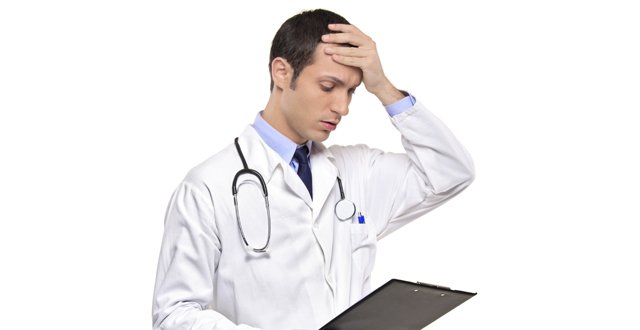
HSE and hospital management should recognise the detrimental effects night shifts can have on healthcare workers and allow staff working outside 9-to-5 to get adequate rest, according to Dr Neasa Conneally
As doctors in training, conversation among my friends and I always inevitably turns towards the long hours we’re working and the particular pains of shift work and nights. Every doctor does it throughout their career and, of course, it’s not unique to us alone. The hospital is also ticking away with nurses, porters, healthcare assistants, radiographers and administration staff when we’re on during the wee hours. Things are a lot better than they were; older doctors often take great pleasure in telling us that we don’t know how good we have it. Sure, back in the day, weren’t they on call for 72 hours straight and then went straight into a full week’s work and weren’t they perfectly grand?
Rose-tinted
glasses aside, there is a great deal of evidence that working long hours
outside of the 9-to-5 isn’t ‘perfectly grand’ and can in fact have a great
impact on workers’ mental and physical health. Dr Michael Farquhar, a paediatric
sleep specialist in the NHS with a particular interest in the impact of shift
work on healthcare workers, wrote in the BMJ in 2016 that moderate sleep deprivation, the equivalent to being awake
for 16-to-18 hours, can have the same effect on reaction time as being at the
legal blood alcohol limit for safe driving. Up to 20 per cent of road traffic
accidents are thought to be fatigue-related and are significantly more likely
to lead to serious harm or death. Night-shift workers have been shown to sleep less
well and for shorter times in the day, are less alert and perform less well
than day-shift workers and are more likely to make simple mistakes and
avoidable errors, leading to increased risks to patient safety. They also have
impaired alertness and reaction times and are more likely to make decisions
that involve higher degrees of risk.
Significant
sleep disruption also has longer-term health effects. It has been shown to
increase the risks of cardiovascular disease, diabetes and obesity, reduce the
effectiveness of the immune system and impact cognitive function and emotional
regulation. In 2007, the World Health Organisation classified night-shift work
as a probable carcinogen due to circadian disruption.
Following
the success of the IMO’s ‘24 No More’ campaign in 2013, shifts longer than 24
hours are now a thing of the past for most specialities in most hospitals,
which one would argue can only be a good thing.
However,
in the past year I have had the pleasure of being on both a 24-hour call rota
and nights and controversial as it may sound, I actually preferred the 24-hour
shifts. They are a short, sharp kind of
pain, which is quickly over and you can then carry on with the rest of your
week, rather like being punched in the face. They come with the promise of a
sparse but clean on-call room, usually with an extremely rickety bed and thin
HSE sheets, however any few hours of snatched sleep between the bleeps leave
you feeling positively refreshed.
In
comparison, I always enter a period of nights with a sense of dread and
trepidation, knowing that the cumulative fatigue will only get worse throughout
the week and by the time that your body has switched to your new time zone,
it’s time to go back to days, leaving you with a horrible, disorientated hangover
and sense that you’ve done real damage to your body.
Despite
all this, hospitals are always going to run 24/7, shift work — it is inevitable
and unavoidable. There’s plenty of advice out there on how to survive it, such
as keeping hydrated, avoiding junk food and resisting the siren call of Red
Bull from the 24-hour shop across the road that just leaves you jittery and
exhausted. There should be particular awareness of the 4am dip, when both staff
and patients are at their lowest physiological ebb. Mistakes are most likely
during this time. Prescribing and other critical decisions should be checked
carefully. Use public transport to get home instead of driving if at all
possible and when you’re home, make sure that you’ve a dark, quiet room, avoid
scrolling through your phone and get out for some fresh air in the evening
before work.
However,
I feel that the hospitals themselves also have a real part to play in how well
their staff get through the night. Relatively simple things, such as providing
good staff rest areas, with a decent sofa and a microwave and kettle, are
inexpensive and make a big difference.
To date, Irish
hospitals don’t seem to be moving in the direction that hospitals in the UK
are, anecdotally removing doctors’ res rooms and banning people from sleeping
during the quiet times at night, which seems damaging to morale at best and
dangerous at worst. Ensuring that hospital staff are as well-rested at night as
possible is to the benefit of the staff but most importantly, our patients.





Leave a Reply
You must be logged in to post a comment.